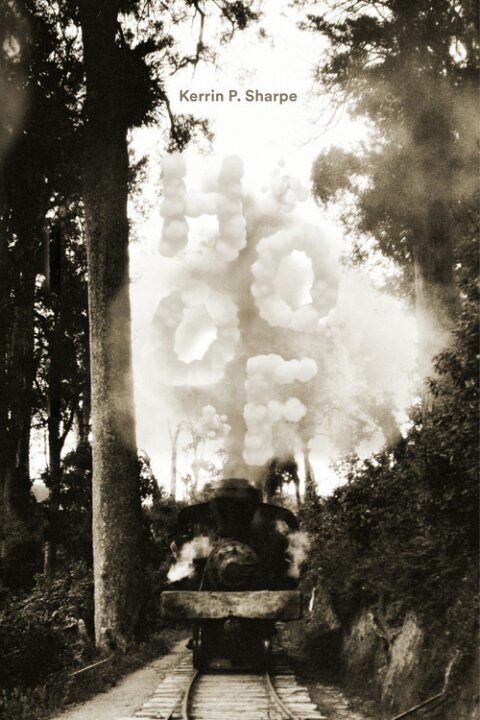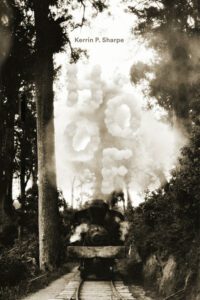Hoof

Hoof by Kerrin P. Sharpe. THWUP (2023). RRP: $25.00. PB, 96pp. ISBN: 9781776921225. Reviewed by S. J. Mannion.

Kerrin P. Sharpe certainly lives up to her surname here, her poetry has the kind of clarity that bites… and though you’re never quite sure where you’ve been bitten, still you feel the teeth marks throb. Hmm, an extended metaphor is a dangerous thing indeed. Gladly, she doesn’t bother with them but comes to the centre, where it holds.
guiding like wooden stars
the mothers of wanderers here below. (‘half-mast’, p.24)
This is her fifth collection and it shows. It has a sagacious almost sober style, though the odd droll glint of humour gleams. This collection has also a quiet confidence and dignity. And it has something of the gravitas of an opus, particularly in the exquisitely elegiac piece Wai Anake / Only Water. With lines like:
with so much reverence
for water
we’re forgiven. (p.46)
I came away from it feeling like I’d been somewhere else for a while. In another element perhaps? As if I’d been underwater for some time and now that I’d surfaced things looked and sounded somehow different. I relished the effect these poems had on me. Like dancers in a word world where:
the sun grows softer
the air lifts their feet. (‘Ballet’, p.37)
Or like a hall of mirrors, where everything you see is both utterly familiar and undeniably strange. Some pieces seem an exercise in ‘disconcertion’ if such a word exists? There is the echo of Derrida’s ‘differance’ and ‘deconstruction’ here too, I think. These elements affect a re-newal of awareness within the reader. There is mātauranga, both emotional and intellectual. These are intelligent, educated poems, and accomplished ones.
South Georgia an albatross
in the wind’s feathers
a floating tin eye
when the bow plates opened
I saw the jittery sun. (‘Elephant Island to South Georgia’, p.68)
There is a classicist feel to them, and at times, a slightly stern quality. There is design here, adherence to a certain code. As a reader, I felt I had to ‘step up’ and ‘in’ to these pieces. I had to assume a position, to alter and adjust my own expectations. Elevate them even.
There is a solid knowing-ness about this writing, a matatau, and a steady voice to raranga or weave the strands within.
I read this pukapuka twice, which is my way when reviewing; first for the feeling, second for the form. And what I was left with, the impression, the remains, might best be expressed by Seamus Heaney’s ‘Badgers’, the last stanza in particular, and the beautiful bald truth of that:
How perilous is it to choose
not to love the life we’re shown?
His sturdy dirty body
and interloping grovel.
The intelligence in his bone.
The unquestionable houseboy’s shoulders
that could have been my own.
There is a measure of breadth and depth in this mahi that would make any poet proud. Ngā mihi nui, wāhine kaituhi, wāhine kaitito, wāhine ngā kupu.
S J Mannion is an Irish writer living in Christchurch, New Zealand. When she can she writes. When she can’t she reads. In between she ukuleles. She is published widely and variously.